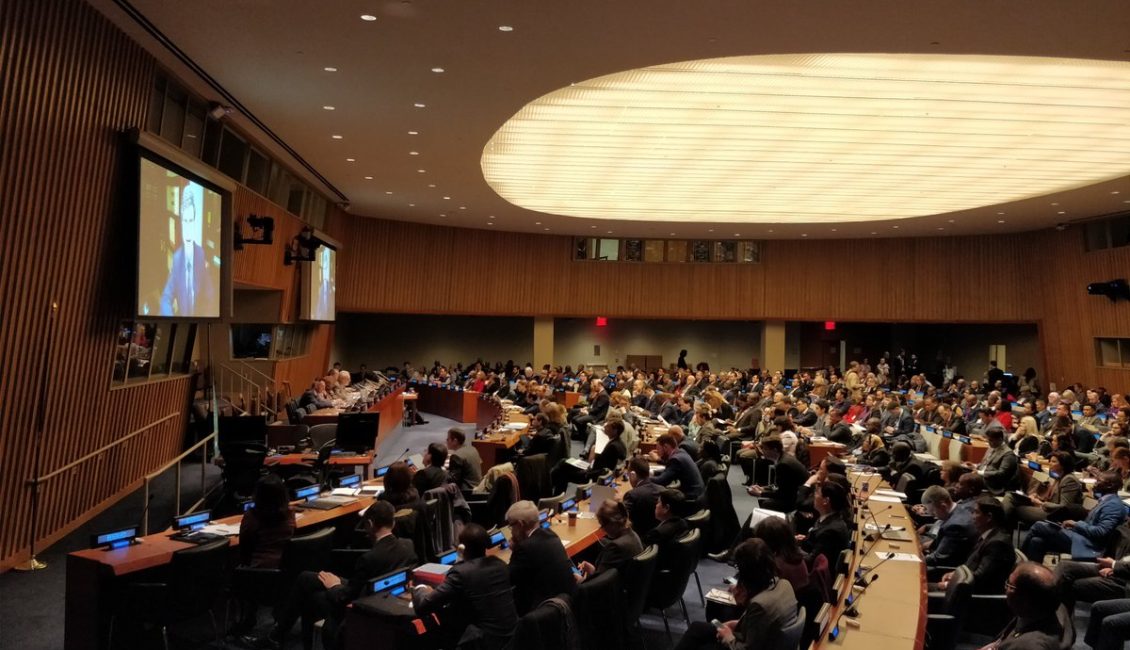
Getting the United Nations to establish an international institution to search for disappeared and missing persons in Syria
NOVA School of Law
Researcher: Jeremy Julian Sarkin
Main Scientific Area: Law, Social Sciences and Humanities
Types of Impact: Turning research into the creation of an international institution
SDGs: 16
SDGs Targets: T16.1; T16.2; T16.3; T16.5; T16.6; T16.7; T16.8 and 16.10
Jeremy Sarkin’s study shifted international attention to locating Syria’s disappeared and supporting their families, rather than solely prosecuting perpetrators.
The study spurred a UN resolution and led to the 2024 creation of the International Institution on Missing Persons (IIMP), focusing on a humanitarian approach for victims of Syria’s human rights violations.
Sarkin’s work encouraged cooperation among Syrian organizations, international bodies, and states, laying groundwork for a coordinated response to enforced disappearances.
In Syria, millions of people have disappeared or been arbitrarily detained. However, human rights processes mainly focus on investigating and prosecuting the perpetrators of these crimes. Institutions rarely centre on assessing victims’ identities and their whereabouts; as a result, victims and their families are left suffering and in need of reparation.
Since the beginning of the conflict in Syria, there has been a call for action, but it is common for states to lack the political will or the ability to address victims’ needs. Still, there is a wealth of material on individuals whose human rights have been violated in Syria, and such documentation can be utilized in humanitarian ways.
Jeremy Sarkin, from NOVA School of Law, recognized this need and conducted a study on this. He firstly conducted a literature review on the enforced disappearances and arbitrary detentions of Syrians. He then conducted a thorough series of interviews and discussions with victims, their families and civil society organisations, as well as institutions and individuals with expertise on the topic, such as the International Committee of the Red Cross (ICRC), the IIMM, International Commission on Missing Persons (ICMP), the UN Working Group on Arbitrary Detention (WGAD), the UN Working Group on Enforced or Involuntary Disappearances (WGEID), CIJA, international lawyers and others. He also met with a number of states to discuss these issues and to gain their support for the establishment of such a process.
To complement his study, Sarkin gathered information available from Syrian organizations, including the number of people in their records, the types of information available on them, and the methodologies for collecting that information. This assessment also extended to the availability of these resources for the families of the victims.
All this work resulted in an excellent overview of the protocols these institutions had already put into practice, shedding light on the limited role that existing institutions have played thus far. More importantly, the study demonstrated how institutions could cooperate and improve these processes in the future and offered options for the creation of a new mechanism dedicated to locating Syria’s disappeared and detained.
Jeremy Sarkin conducted this work, culminating in several publications, including the book “The Conflict in Syria and the Failure of International Law to Protect People Globally: Mass Atrocities, Enforced Disappearances, and Arbitrary Detentions” as well as a number of journal articles. This impactful work, in combination with a study he conducted for the “Truth and Justice Charter Syria”—a charter composed of five Syrian NGOs—was recognized by the United Nations as reflecting the importance of creating such a mechanism. This is the first time this has been done.
The study initiated a series of events starting on December 24, 2021, when the UN General Assembly adopted a resolution that noted the widespread practices of enforced disappearance, arbitrary detention, and torture in Syria. In August 2022, the UN High Commissioner for Human Rights recommended such an international mechanism to address these issues. This was followed by an additional report, a meeting with representatives of victims, and a dialogue in the General Assembly, where a resolution was adopted to establish a mechanism for action.
This mechanism of action was implemented in 2024 with the establishment of the International Institution on Missing Persons (IIMP), which welcomed the suggestion and focused attention on the need for a humanitarian approach to deal with the victims of human rights violations in Syria.
Through the lens of Syria, Sarkin has provided a compelling and provocative case to prioritize assistance to victims of massive human rights violations. His solutions and proposals for action to address longstanding, intractable problems in international governance deserve urgent attention.
Leigh Toomey, Former Chairperson (2020-2021) and Member of the United Nations Working Group on Arbitrary Detention (2015-2022)
The proposed creation of a “new mechanism to conduct searches for disappeared and detained people in Syria and find information for their families.”…are ambitious proposals, most of which would confront political firestorms by powerful nations and a stubborn U.N. bureaucracy. But Sarkin puts his case on the table forthrightly and with significant evidence and his views are worthy of serious consideration in both the policy and academic worlds.”
David J. Scheffer, former U.S. Ambassador at Large for War Crimes Issues








